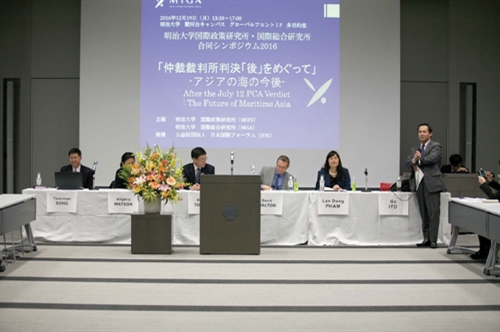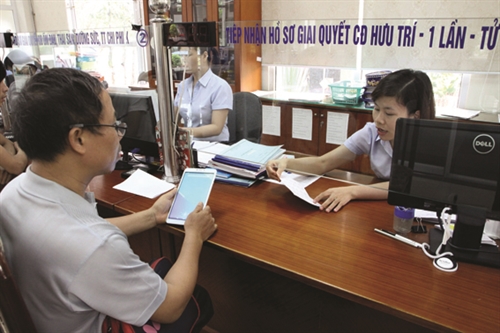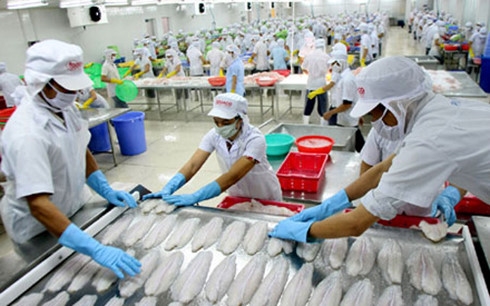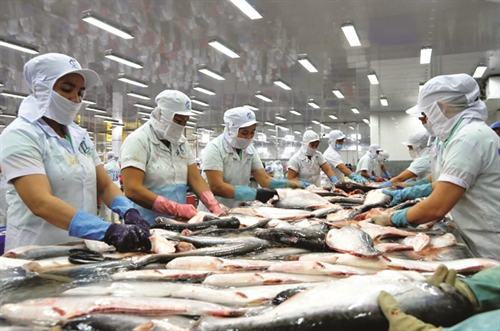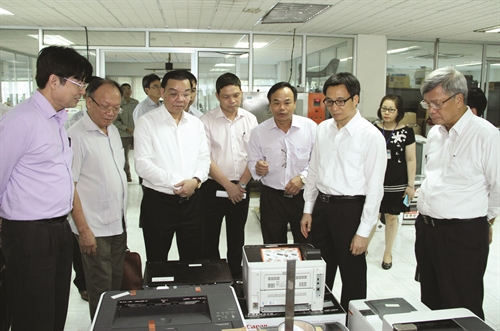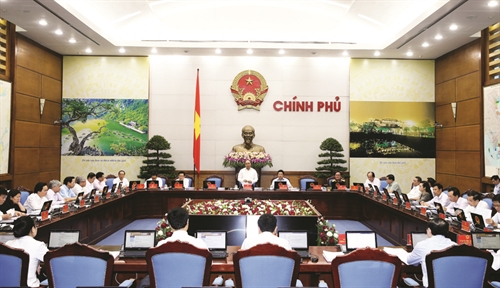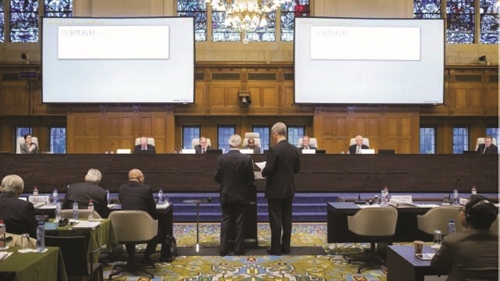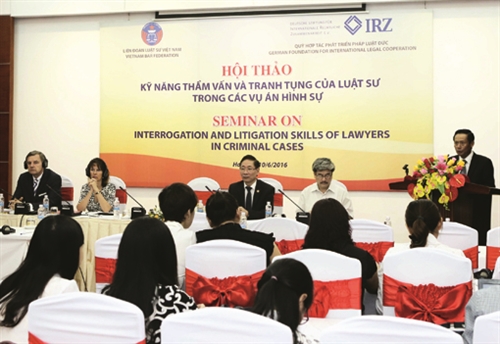Dharmendra N. Choudhary[1]
Vietnamese leading aquatic producer and exporter CASEAMEX (Can Tho Import-Export Joint Stock Company) in January won a significant victory at the US Court of International Trade (CIT), in an appeal filed against the US Department of Commerce (DOC or Commerce) in the anti-dumping (AD) proceeding on fish fillet exports from Vietnam.
Under US dumping law a company is conferred “separate rates” status if it can prove it is free from government control (legal or factual control). The Separate Rate is a duty rate calculated as the average of the participating mandatory exporters in a dumping review and it is usually much lower than the country-wide rate, which is reserved for government-controlled exporters.
Based on a presumption that it is controlled by the Vietnamese government, the DOC denied CASEAMEX a separate rate status and imposed a very high rate of AD duty - technically called the Vietnam-wide rate. The CIT rejected the DOC’s decision and sent the case back for reconsidering CASEAMEX’s separate rate status. This article provides a background of DOC’s separate rate policy practiced in the context of AD proceedings against Vietnam and explains the large significance of the CIT opinion for CASEAMEX as well as other government-controlled Vietnamese exporters.
In US AD proceedings, the DOC applies very different methodologies for determining the rate of AD duties on goods exported from Market Economy (ME) countries (such as, Germany) and Non Market Economy (NME) countries (such as, China and Vietnam). In case of ME countries, Commerce assigns individual AD duties to mandatory respondents (typically, the top two leading exporters), after a detailed examination of the exporter’s (and associated producer’s) production and sales data. Thereafter, “all other” ME exporters are assigned a common AD duty, which is a weighted average of the AD duties assigned to the mandatory respondents.
However, in the case of AD proceedings against NME countries like Vietnam, Commerce follows a markedly different policy. In Vietnamese AD proceedings, entitlement to either an individually investigated AD rate or a weighted average “all others” AD rate to non-investigated exporters is not a matter of right. Only such exporters are assigned either an individually investigated AD rate or a weighted average “all others” AD rate, who are able to demonstrate their independence from the Vietnamese government. All other Vietnamese exporters that fail to rebut the presumption of government control are assigned a punitive Vietnam wide AD duty.
As such, demonstrating independence from Vietnamese government control and thereby, entitlement to a separate AD rate is a threshold and most critical issue for all Vietnamese exporters, especially those that are partly or wholly owned or controlled by the Vietnamese government.
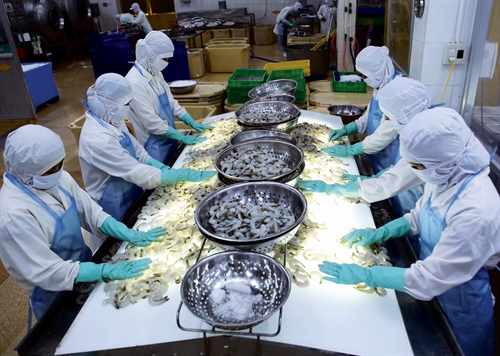 |
| Processing frozen shrimps for export at Cuu Long Aquatic Product JSC (Tra Vinh province)__Photo: Vu Sinh/VNA |
COMMERCE’s rationale for generally imposing a Vietnam wide AD duty except for separate rate companies
In AD proceedings involving NME countries like Vietnam, Commerce has a rebuttable presumption that the export activities of all firms within the country are subject to government control and influence. This presumption is not grounded in a belief that the Vietnamese economy comprises entirely of the government (e.g., a firm is nothing more than a government work unit), but rather from the Vietnamese government’s supposed use of a variety of legal and administrative levers to exert influence and control (both direct and indirect) over the various economic actors across the economy, with regard to control of prices, output decisions, and the allocation of resources. As such, this presumption is fundamentally different from a presumption that all firms are one-and-the same as the government, such that they comprise a monolithic economic entity. The burden to rebut the presumption of state control is placed on the exporters, by demonstrating an absence of government control. As noted above, firms that are unable to rebut the presumption are assessed a single antidumping duty rate, i.e., the Vietnam-wide rate.
However, in recognition that parts of Vietnam’s economy are transitioning away from the state-controlled economy, Commerce developed a separate rates test. In an economy comprised of a single, monolithic state entity, it would be impossible to identify separate firms, let alone rebut government control. Rather, Commerce recognizes that Vietnam’s economy today is neither command-and-control nor market-based; government control and/or influence is omnipresent (which gives rise to the presumption) but not omnipotent (and hence, the presumption is rebuttable).
COMMERCE’s separate rates test
Commerce’s policy is to assign all exporters of subject merchandise from Vietnam a single country-wide rate unless an exporter can affirmatively demonstrate an absence of government control, both in law (de jure) and in fact (de facto), with respect to exports and thereby demonstrate its eligibility for a “separate rate”. Commerce considers the following factors under its de jure and de facto tests:
De jure
1. Absence of restrictive stipulations on the business license.
2. Legislative enactments decentralizing control over companies.
3. Other decentralizing legislation.
De facto
1. Ability to set own export prices without government oversight.
2. Authority to negotiate and sign contracts/agreements.
3. Autonomy from the government in selection of management.
4. Ability to retain proceeds from sales/decide disposition of profits.
The above factors are not statutorily mandated, but have developed over time, based on agency and Court decisions.
Since the inception of the separate rates test and from 1991 through 2012, Commerce applied it in a manner so that most of the government-controlled state-owned enterprises (SOE) qualified for a separate rate status, provided they fulfilled all of the de jure and de facto criteria.
Ratcheting up of separate rate test in 2013 - advanced tech case
However, this status quo was disturbed in 2013, when in a Chinese AD case, Advanced Technology & Materials v. U.S., the CIT questioned Commerce’s traditional analysis of management and ownership issues related to SOEs. Following the Court’s decision, Commerce adopted a new test for SOEs, which essentially makes it impossible for an SOE to qualify for separate rate status. Pursuant to this test, where a government entity holds a majority share, either directly or indirectly, in the respondent exporter, Commerce deems the majority ownership holding, in and of itself, to imply that the government exercises, or has the potential to exercise, control over the company’s operations generally, for example, in the selection of management, a key factor in determining whether a company has sufficient independence in its export activities, rendering the company ineligible for a separate rate. In 2015, Commerce’s new policy was endorsed by CIT in Jiangsu Jiasheng Photovoltaic Tech. Co. v. United States.
In 2016, Commerce ratcheted up the Advanced Tech. test further, when the agency denied separate rate to a Chinese tire exporter even though the Chinese government’s shareholding in the exporting entity was only about 25 percent. As such, it appeared that with regard to government ownership in an exporter, Commerce was applying a per se rule and denying separate rate status to an exporter even with a minimal exposure to government shareholding.
Significance of CASEAMEX ruling
Predictably, following its recent policy, Commerce denied CASEAMEX a separate rate status even though the shareholding of Vietnamese government was significantly below 50 percent and even below 20 percent. Commerce simply presumed that Vietnamese government had a potential to appoint management and thereby exercise control over CASEAMEX’s export activities, even though in each prior review with the same residual government interest, CASEAMEX had been granted a separate rate. Therefore, CASEAMEX challenged this decision before CIT.
CASEAMEX, represented by one of the largest US law firms specializing in trade law, GDLSK LLP, led by senior Counsel Andrew Schroth, presented convincing facts and arguments before the Court, showing that there was no record evidence that the Vietnamese government had any influence or control over CASEAMEX, particularly with respect to the appointment of senior level management at CASEAMEX. As such, Commerce’s decision to deny a separate rate status was based on a presumption of potential control rather than an actual control exercised by the minority-shareholder government over CASEAMEX’s management. CIT has sent the issue back to Commerce to reexamine the level of government control, based on actual conduct instead of potential conduct of Vietnamese government in relation to CASEAMEX.
As such, the CASEAMEX ruling sets a very important precedent given that the CIT has for the very first time pushed back Commerce on a threshold issue that has become a scourge for several Vietnamese exporters. A favorable decision in this case will have a precedential value for all those cases where a Vietnamese exporter has a small or residual government interest or shareholding.
Conclusion
With regard to Vietnamese exporters who are not majority controlled by the government, Commerce must recognize that residual government shareholding in a company does not automatically translate into day-to-day government control, either in the selection of management or in the setting of export prices. In a highly competitive international market, these prices are determined rather by market forces, i.e., by considerations of profit and loss. Therefore, Commerce and the Courts should revisit the current separate rate policy being applied to such exporters. There is no objective rationale to discriminate against such exporters. At a minimum, a per se rule to deny separate rate status must not be applied to such exporters.-

